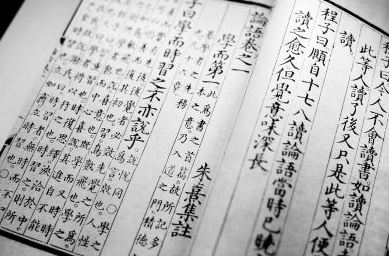Chi K'ang asked Confucius about government.
季康子问政于孔子。
Confucius replied, "To govern means to rectify. If you lead on the people with correctness, who will dare not to be correct?"
孔子对曰:“政者,正也。子帅以正,孰敢不正?”
Chi K'ang, distressed about the number of thieves in the state, inquired of Confucius how to do away with them.
季康子患盗,问于孔子。
Confucius said, "If you, sir, were not covetous, although you should reward them to do it, they would not steal."
孔子对曰:“苟子之不欲,虽赏之不窃。”
Chi K'ang asked Confucius about government, saying, "What do you say to killing the unprincipled for the good of the principled?"
季康子问政于孔子曰:“如杀无道以就有道,何如?”
Confucius replied, "Sir, in carrying on your government, why should you use killing at all?
孔子对曰:“子为政,焉用杀?

Let your evinced desires be for what is good, and the people will be good.
子欲善而民善矣。
The relation between superiors and inferiors is like that between the wind and the grass, the grass must bend, when the wind blows across it."
君子之德风,小人之德草,草上之风必偃。”
Tsze-chang asked, "What must the officer be, who may be said to be distinguished?"
子张问:“士何如斯可谓之达矣?”
The Master said, "What is it you call being distinguished?"
子曰:“何哉尔所谓达者?”
Tsze-chang replied, "It is to be heard of through the state, to be heard of throughout his clan."
子张对曰:“在邦必闻,在家必闻。”












